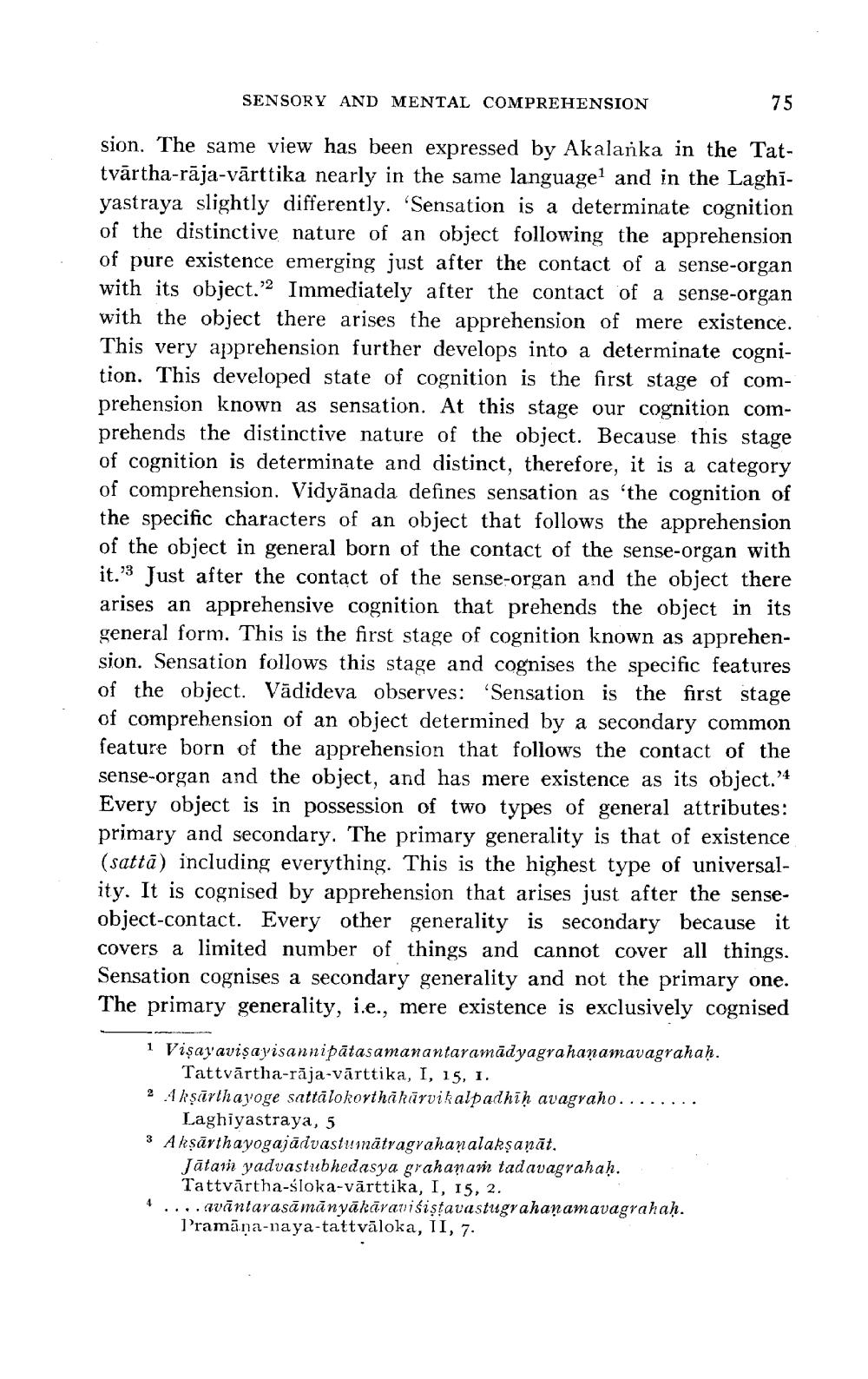________________
SENSORY AND MENTAL COMPREHENSION
sion. The same view has been expressed by Akalanka in the Tattvārtha-rāja-värttika nearly in the same language1 and in the Laghiyastraya slightly differently. 'Sensation is a determinate cognition of the distinctive nature of an object following the apprehension of pure existence emerging just after the contact of a sense-organ with its object."2 Immediately after the contact of a sense-organ with the object there arises the apprehension of mere existence. This very apprehension further develops into a determinate cognition. This developed state of cognition is the first stage of comprehension known as sensation. At this stage our cognition comprehends the distinctive nature of the object. Because this stage of cognition is determinate and distinct, therefore, it is a category of comprehension. Vidyanada defines sensation as 'the cognition of the specific characters of an object that follows the apprehension of the object in general born of the contact of the sense-organ with it. Just after the contact of the sense-organ and the object there arises an apprehensive cognition that prehends the object in its general form. This is the first stage of cognition known as apprehension. Sensation follows this stage and cognises the specific features of the object. Vädideva observes: 'Sensation is the first stage of comprehension of an object determined by a secondary common feature born of the apprehension that follows the contact of the sense-organ and the object, and has mere existence as its object.'4 Every object is in possession of two types of general attributes: primary and secondary. The primary generality is that of existence (satta) including everything. This is the highest type of universality. It is cognised by apprehension that arises just after the senseobject-contact. Every other generality is secondary because it covers a limited number of things and cannot cover all things. Sensation cognises a secondary generality and not the primary one. The primary generality, i.e., mere existence is exclusively cognised
1 Visayaviṣayisannipätasamanantaramadyagrahanamavagrahaḥ. Tattvärtha-raja-vārttika, I, 15, 1.
2 Akṣarthayoge sattālokorthākāärvikalpadhiḥ avagraho..
Laghiyastraya, 5
3 Akṣārthayogajädvastu mätragrahanalakṣaṇāt.
Jātam yadvastubhedasya grahanam tadavagrahaḥ. Tattvartha-śloka-värttika, I, 15, 2.
....avāntarasāmānyākāravisiṣṭavastugrahanamavagrahaḥ. Pramāṇa-naya-tattvaloka, II, 7.
4
75




